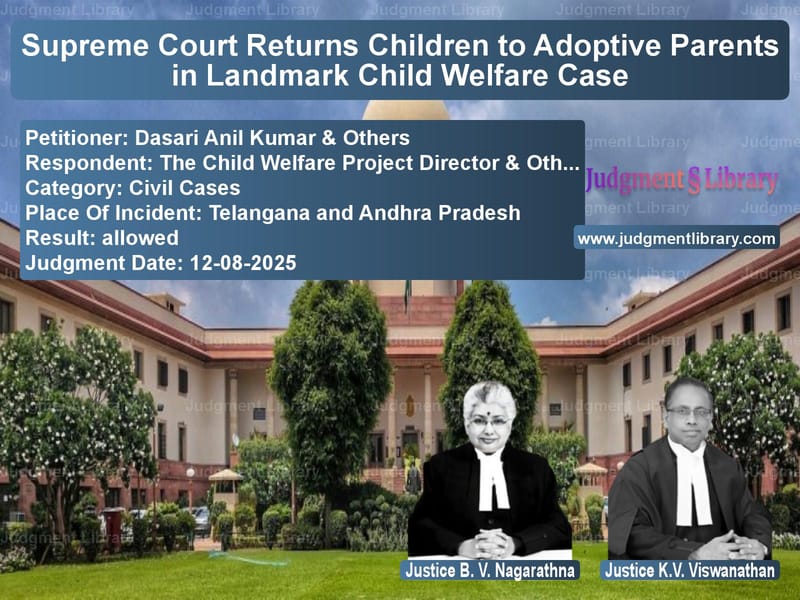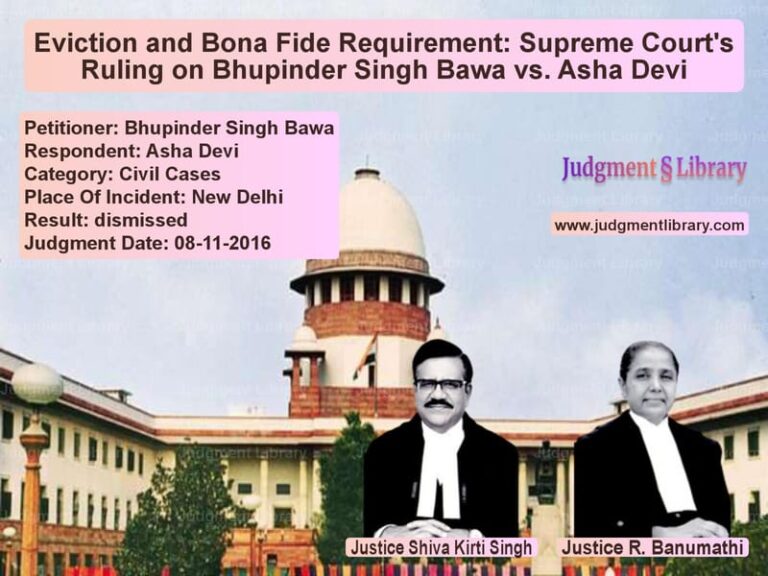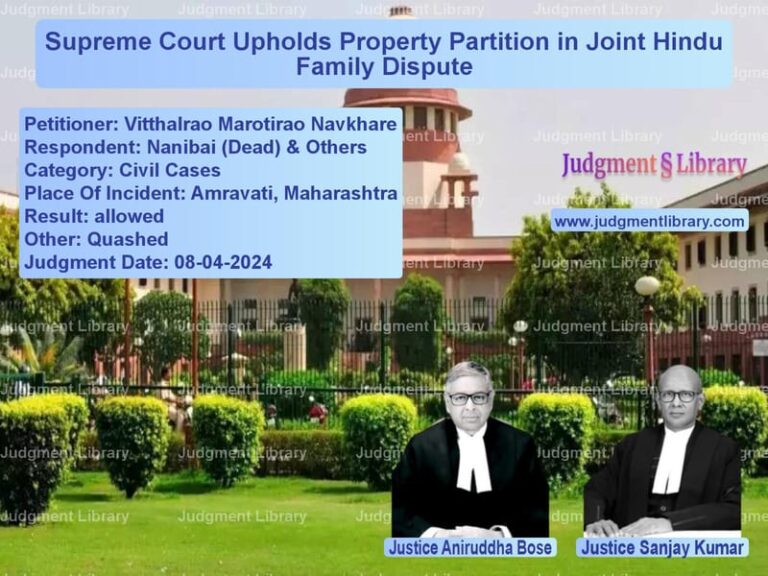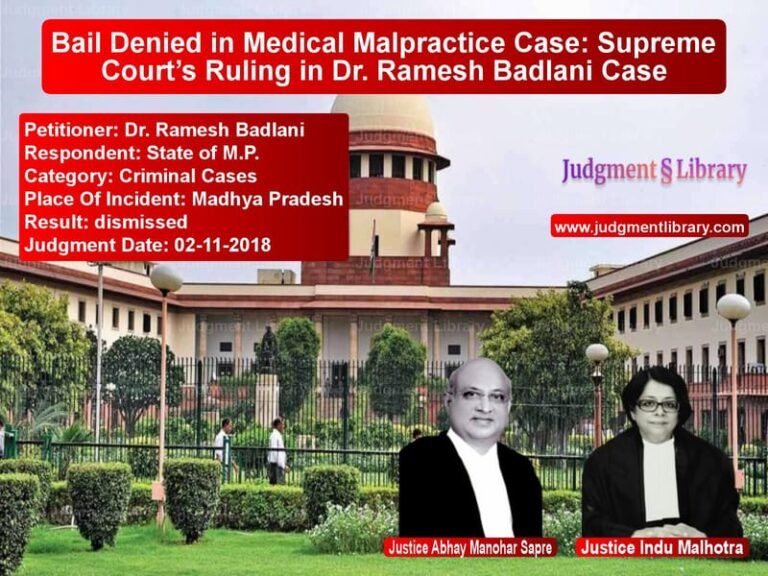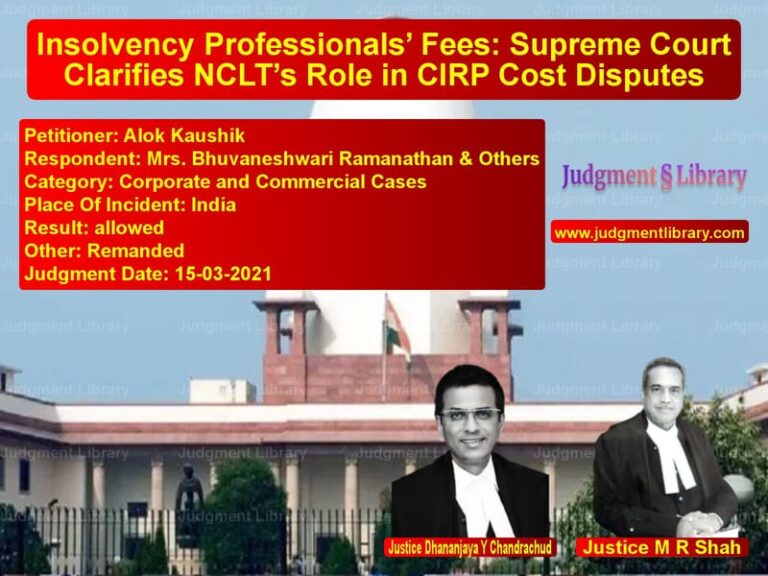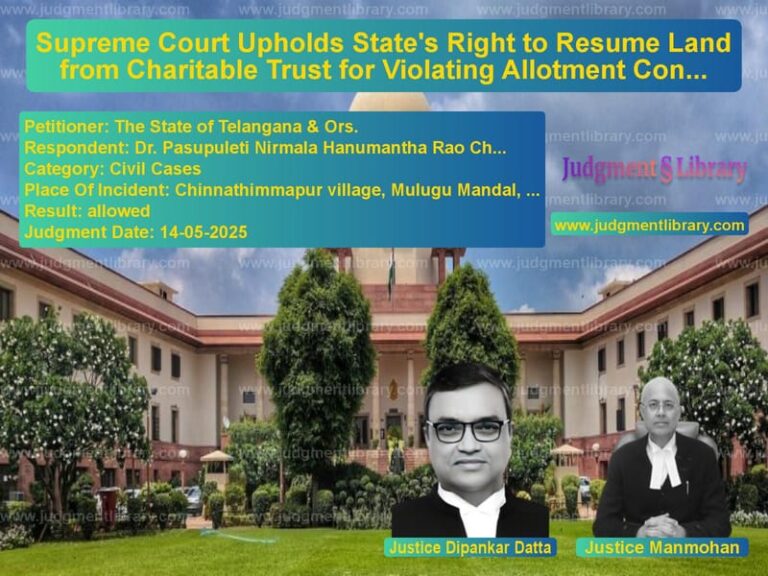Supreme Court Returns Children to Adoptive Parents in Landmark Child Welfare Case
In a heartwarming judgment that prioritizes the emotional well-being of children, the Supreme Court of India has ordered the return of four minor children to their adoptive parents, overturning a High Court decision that had kept the children in institutional care. The case involved four sets of adoptive parents from Telangana and Andhra Pradesh who had taken in children through private adoptions, only to have police authorities remove the children from their custody months or even years later. The Supreme Court’s ruling emphasizes that the best interest of the child must always be the paramount consideration in such matters, and that institutionalization should only be used as a last resort.
The legal battle began when police authorities in Rachakonda, acting on an FIR, took custody of the minor children from their adoptive parents on May 22, 2024, and handed them over to the Child Welfare Project Director and integrated Child Protection Services in Hyderabad. The adoptive parents approached the High Court, arguing that the police action was illegal and violated their constitutional rights. The single judge of the High Court ruled in favor of the parents, stating that the Juvenile Justice Act didn’t apply to their situation and that the police action was without legal authority. However, the Division Bench of the High Court reversed this decision, keeping the children in institutional care and directing the Child Welfare Committee to follow proper procedures under the Juvenile Justice Act.
The adoptive parents then approached the Supreme Court, presenting their cases in detail. Dasari Anil Kumar and Bezawada Sathya had adopted three-year-old D. Maanvika on March 30, 2024. Kandala Padma had adopted K. Uma Maheshwari on November 15, 2021, though her husband had passed away in 2023. Shulla Mallesh and Sovda Sruthi had adopted S. Rishika on January 26, 2024, while B. Santosh and Dasari Jagadeeswari Devi had adopted B. Sresta on January 22, 2024. All these children had been living with their adoptive families for periods ranging from several months to nearly three years before being removed by authorities.
The Supreme Court, after hearing arguments from both sides, made a decisive intervention in favor of the children’s welfare. The Court stated: “Having heard learned senior counsel for the appellants and learned counsel for the respondents, we find that ends of justice would be served in the instant case by directing return of the above-mentioned children to the ‘adoptive parents’. We also say so by invoking our powers under Article 142 of the Constitution in the peculiar facts of the case.”
The Court’s reasoning was deeply rooted in child welfare principles, particularly those enshrined in the Juvenile Justice Act itself. The judgment extensively referenced Section 3 of the Act, which outlines the fundamental principles to be followed in administering the legislation. The Court emphasized: “This is in the interest of the children owing to the bonding between the ‘adoptive parents’ and the respective children. This is by following the principle of the best interest of the child; principle of family responsibility; principle of safety, positive measures, principle of Institutionalization as a measure of last resort, principle of repatriation and restoration.”
The Court specifically highlighted several key principles from the Juvenile Justice Act that guided their decision. These included the “Principle of best interest: All decisions regarding the child shall be based on the primary consideration that they are in the best interest of the child and to help the child to develop full potential” and the “Principle of family responsibility: The primary responsibility of care, nurture and protection of the child shall be that of the biological family or adoptive or foster parents, as the case may be.” Particularly significant was the Court’s emphasis on the “Principle of institutionalisation as a measure of last resort: A child shall be placed in institutional care as a step of last resort after making a reasonable inquiry” and the “Principle of repatriation and restoration: Every child in the juvenile justice system shall have the right to be re-united with his family at the earliest and to be restored to the same socio-economic and cultural status that he was in, before coming under the purview of this Act.”
While ordering the return of the children to their adoptive parents by August 14, 2025, the Supreme Court also put in place important safeguards to ensure the children’s ongoing welfare. The Court directed that “the Member Secretary of the State Legal Services Authority and/or the Member Secretary of the District Legal Services Committee, within whose jurisdiction the ‘adoptive parents’ reside to seek reports on the welfare and progress of the child from the respective ‘adoptive parents’ on a quarterly basis starting from November, 2025 onwards.” The legal authorities were also given the power to “depute a Child Welfare Expert to inspect the home where the child and the ‘adoptive parents’ reside.” This balanced approach ensured that while the children would be returned to their familiar home environments, their well-being would continue to be monitored professionally.
The Supreme Court was careful to clarify that their decision was specific to the unique circumstances of these cases, where the children had already formed strong bonds with their adoptive families over significant periods. The Court noted: “We again clarify that we have passed the aforesaid order in the best interest of the children concerned in the instant case as they have been with their adoptive parents for a few months upto three years in these cases.” The judgment also made it clear that it was exercising its special powers under “Article 142 of the Constitution of India so as to do complete justice in the matter” and that the order would not affect any other legal proceedings that might be ongoing.
This judgment represents a significant development in Indian child welfare jurisprudence, reinforcing that legal procedures must ultimately serve the best interests of children rather than becoming technical obstacles to their happiness and well-being. By prioritizing the emotional bonds these children had formed with their adoptive families and recognizing the potential harm of unnecessary institutionalization, the Supreme Court has sent a powerful message about how child custody matters should be approached. The ruling balances the need for proper adoption procedures with the recognition that established family relationships deserve protection, especially when disrupting them could cause significant psychological harm to vulnerable children. The Court’s additional safeguards also demonstrate a thoughtful approach to ensuring that children’s welfare continues to be monitored even after they are returned to their families.
Petitioner Name: Dasari Anil Kumar & Others.Respondent Name: The Child Welfare Project Director & Others.Judgment By: Justice B. V. Nagarathna, Justice K.V. Viswanathan.Place Of Incident: Telangana and Andhra Pradesh.Judgment Date: 12-08-2025.Result: allowed.
Don’t miss out on the full details! Download the complete judgment in PDF format below and gain valuable insights instantly!
Download Judgment: dasari-anil-kumar-&-vs-the-child-welfare-pr-supreme-court-of-india-judgment-dated-12-08-2025.pdf
Directly Download Judgment: Directly download this Judgment
See all petitions in Child Custody
See all petitions in Juvenile Justice
See all petitions in Judgment by B.V. Nagarathna
See all petitions in Judgment by K.V. Viswanathan
See all petitions in allowed
See all petitions in supreme court of India judgments August 2025
See all petitions in 2025 judgments
See all posts in Civil Cases Category
See all allowed petitions in Civil Cases Category
See all Dismissed petitions in Civil Cases Category
See all partially allowed petitions in Civil Cases Category

